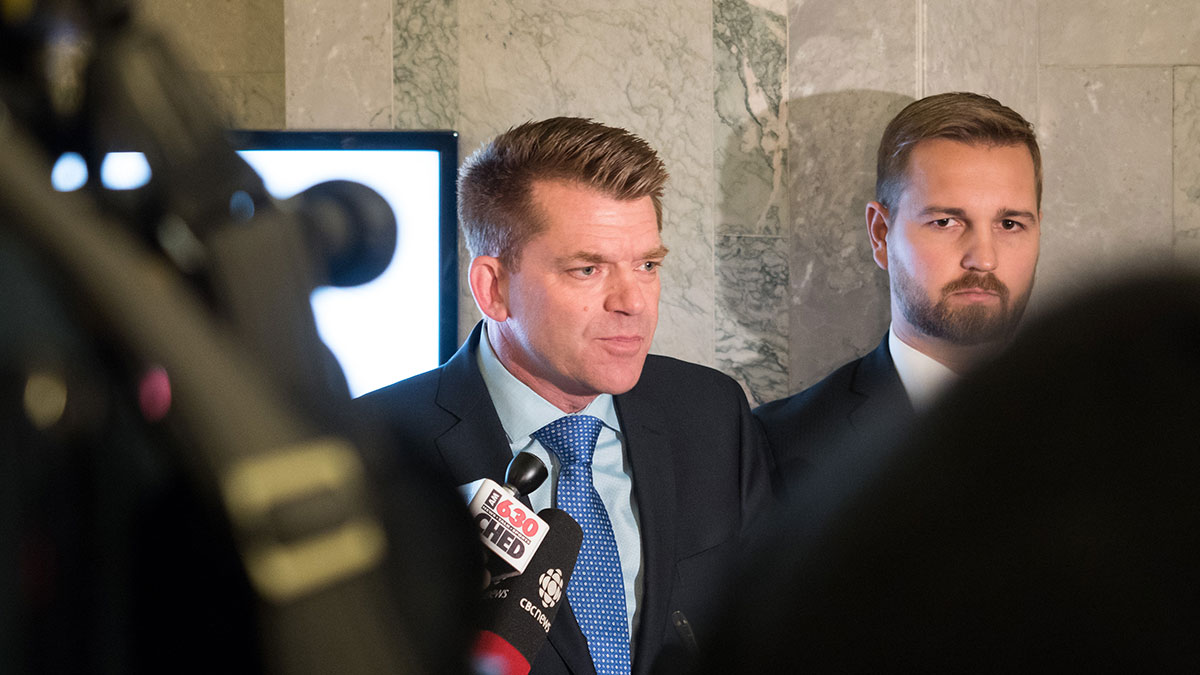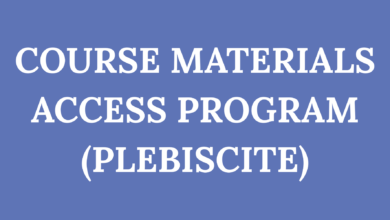Wildrose Party calls for end to mandatory SU memberships
 Ab Sch
Ab SchThe Alberta Wildrose Party is denouncing mandatory students’ union memberships and fees, while students’ unions are fighting back, citing their key services and role in keeping post-secondary administrations and the government accountable.
A policy proposal by the Wildrose says that the Government of Alberta should look into changing the province’s Post-Secondary Learning Act, and allow students to choose whether they’d like to become a paying member of a student association, such as the University of Alberta’s Students’ Union. The policy was unanimously approved by the Wildrose’s members and applauded at their Annual General Meeting on Saturday, Nov. 14.
The Wildrose Party’s rationale behind the proposal is that “much like mandatory membership and dues to any public sector union, these dues are then often used to advance certain, often progressive, political agenda.”
One of the Wildrose memebers who signed off on the proposal is University of Calgary student Keean Bexte.
Bexte, who served as a U of C Students’ Union Councillor for the Faculty of Science, said “distasteful lobbying” of student associations was the wrong approach, and questioned the merit of those student association.
“If (the Students’ Union) consulted every single member of the union, not everyone would agree with them,” Bexte said. “A large minority, if not a majority, of students would disagree with the SU on some issues. I think there’s better ways to deal with these issues than forced unionization.”
Bexte added that the policy proposal is not an attack on students’ unions, but a just a question to the status quo.
“The Wildrose Party wants high quality services for students, we want students to feel represented, I just don’t think the Wildrose Party supports the fact that artificial monopolies are the best service providers do this for students,” he said.
U of A SU President Navneet Khinda said the Wildrose Party’s proposal was “misguided,” and even “insulting.” She refuted the rationale that students’ unions spend money inappropriately, as a small fraction of membership dues support their advocacy efforts.
The Council of University Alberta Students (CAUS) released a letter to the Wildrose Party ahead of their AGM, stating that membership fees support their roles as “fiscal watch-dogs” and non-partisan advocates, as well as enabling them to provide core services for students. This would create logistical issues, Khinda said.
“What would happen if it was an opt-in type of thing?” Khinda asked. “Does it mean that students don’t have access to our services? Would it create a problem where we don’t know who has paid and who hasn’t? There are a lot of logistical issues there, and you don’t ever want to deny a student access to the Peer Support Centre.”
While Bexte and Khinda are on opposite sides of the spectrum in the debate, they agreed on the point that it’s unlikely the current Alberta NDP government would legislate a policy such as this.
“I highly doubt this would be something (the NDP) would be interested in,” Bexte said. “This type of freedom of students isn’t what the NDP wants.”
For Khinda, she said she believes this policy is “out of step with that Albertans think and even want.
“I think this government does value a students’ right to associate and a students’ right to govern,” she said.
“But this is official opposition, and we have to take them seriously. I hope that at least if this policy stays in their books, that they at least talk to the students’ unions and student associations in the future.”
Correction: A previous version of this article quoted Keean Bexte as saying “official monopolies.” This has since been corrected to “artificial monopolies.”





Students should be allowed to opt out of student unions. Some SU’s are worse than others – U of A is lucky to have an overall less dogmatic and extreme SU than is seen at many other schools, such as Ryerson, U of T, York and to an extent, my alma mater UVic. However, it’s forced membership dues that breed the entitlement allowing SU executives (usually elected by about 10% to 20% of students) to use the student union as a vehicle for their own pet political projects (as well as an opportunity to promote themselves in mainstream media, which often has no idea that these supposed “poor students” are actually drawing generous salaries well beyond their qualifications, paid for out of student fees.)
I am a former executive member of the U of A Law Students’ Association, which allows opt-outs. I think about 9 law students opted out last year. Law students who opt out of the LSA don’t get lockers, discount cards or the same prices when attending LSA sponsored events such as the Carbolic Smoke Ball (they can still attend but the cost is higher.) There’s no reason opting out can’t work the SU as it works for the LSA and some other organizations on campus such as APIRG. As things currently stand, I suspect the number of students bothering to opt out would be low. If the SU became more extreme and ideological, or its financial management began to deteriorate, more students would opt out and the SU would be forced to fix the issue that was contributing to the opt-outs, in order to keep their funding from disappearing.
Finally, Australia and New Zealand have been cited as examples of voluntary student unionism leading to the demise of student unions. Australia is a bit different case since they actually made student unions “opt in” rather than “opt out.” Of course this was logistically very difficult since the SUs had to manually enrol members. While a supporter of voluntary student unionism, I do not advocate for an “opt in” system but rather an “opt out” system like that in place with the LSA and APIRG. Secondly, the largest student union in New Zealand, at the University of Auckland, had already made its own membership voluntary long before Parliament abolished mandatory student unionism (and Auckland’s SU also charges no student fees, unlike every SU in Canada). Furthermore, even before the voluntary student unionism bill passed in New Zealand, students who were ideologically opposed to the activities of their SU were allowed to redirect their fees to a charity of their choice. If the opt out system is not adopted, I would suggest that Canadian students should have this option instead, so we are not forced to subsidize SUs which focus on political causes that we oppose.
Bexte’s policy is dripping with bias and incorrect information. This is beyond misguided or insulting, he is just straight-up wrong. Every student has a right to vote, and None of the Above is always a valid option if students want to voice their discontent with the current system. While the leaders of SUs tend to be progressive, that sentiment doesn’t often bleed into their work representing all types of students, and never impacts government relations. It’s just a fact that progressive governments are more likely to support students, so our SU would work well with them, because they also want to support students.
What is not mentioned here is Bexte’s failed run for the leadership he is now criticizing. He ran in the last election for the U of C SU’s VP Operations and Finance position, so I wonder how his tone would change were he elected, and if he would still feel that optional membership fees are the best way to serve students.
“Bexte’s policy is dripping with bias and incorrect information. This is beyond misguided or insulting, he is just straight-up wrong.”
Wrong how?
“Every student has a right to vote”
But students don’t have a right to opt out, which is what’s at issue here, not the right to vote for whoever will be the representatives.
“It’s just a fact that progressive governments are more likely to support students”
Source? If it’s “just a fact,” it shouldn’t be too hard for you to, you know, provide some kind of evidence for your baldly asserted political opinion.
“What is not mentioned here is Bexte’s failed run for the leadership he is now criticizing. He ran in the last election for the U of C SU’s VP Operations and Finance position”
How is this in any way relevant?
“I wonder how his tone would change were he elected, and if he would still feel that optional membership fees are the best way to serve students.”
Baseless speculation.